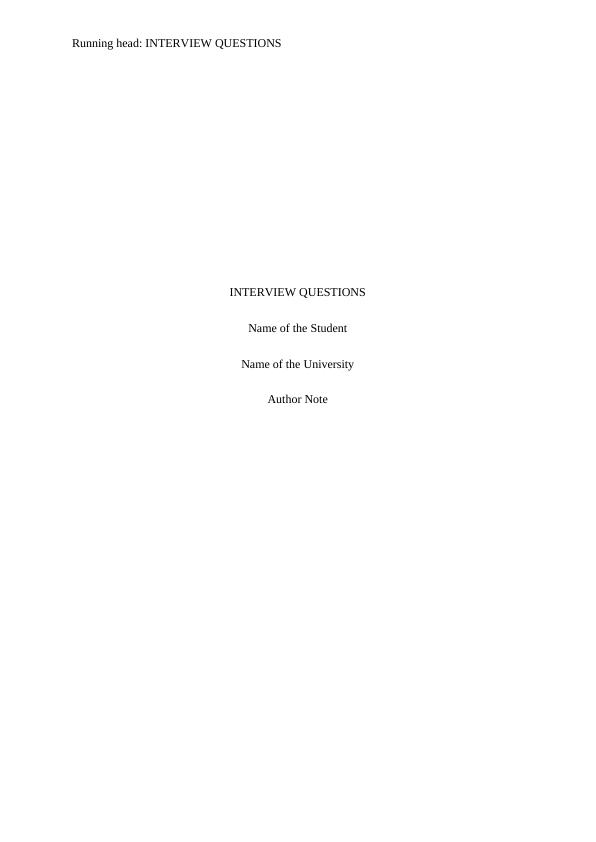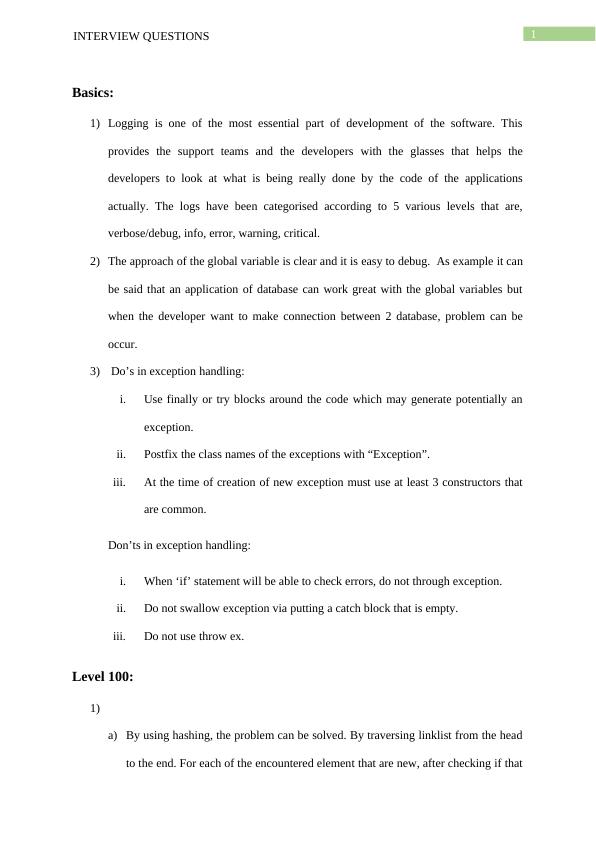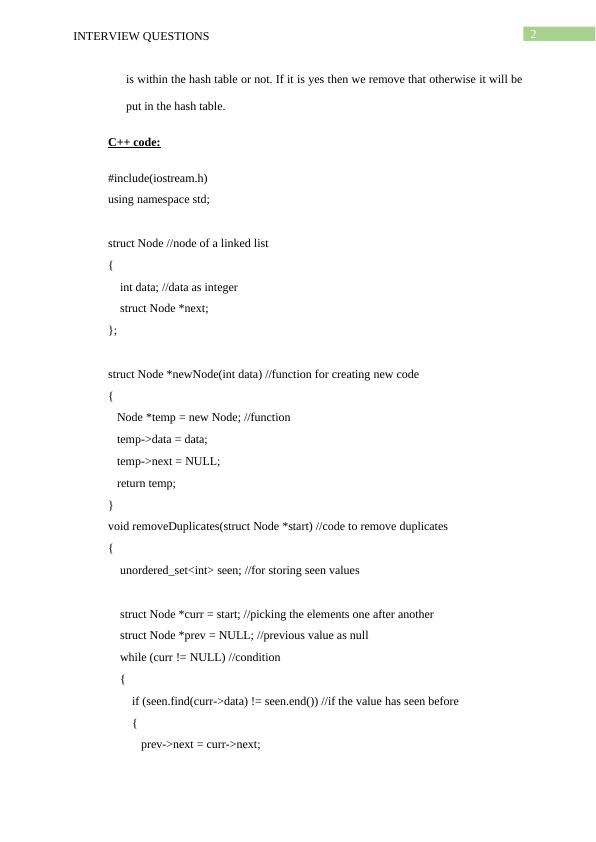Interview Questions
Attempt questions on logging in an application, use of global variables, exception handling, removing duplicates from a list, checking if strings are permutations, and designing a promotion giveaway for a retail client.
7 Pages1175 Words91 Views
Added on 2023-03-17
About This Document
This document provides a list of common interview questions and their answers. It covers topics such as logging in software development, exception handling, and problem-solving techniques. The document also includes code examples in C++ for solving specific problems. Suitable for students and professionals preparing for job interviews.
Interview Questions
Attempt questions on logging in an application, use of global variables, exception handling, removing duplicates from a list, checking if strings are permutations, and designing a promotion giveaway for a retail client.
Added on 2023-03-17
ShareRelated Documents
End of preview
Want to access all the pages? Upload your documents or become a member.



